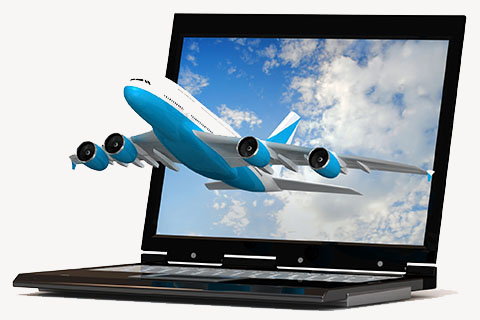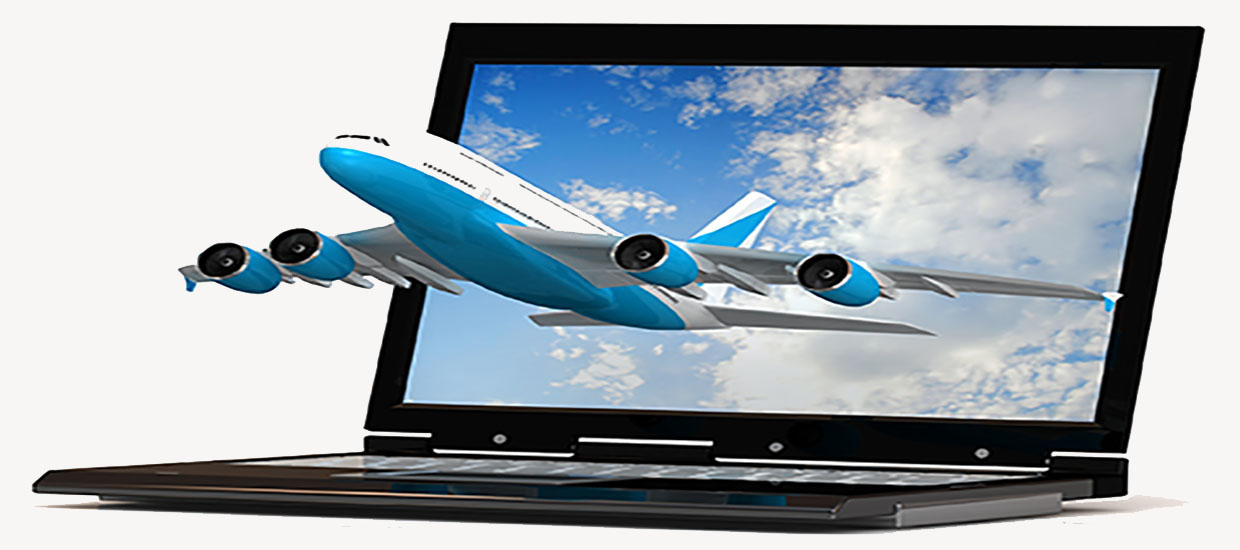Understanding Export Compliance When Traveling
This page is to help bring awareness to the issues concerning export control laws and regulations and other safety guidance when University faculty and staff travel internationally on University business. The University’s travel policy and other tools can be found on the University’s travel page.
You have your flight reservations, hotel is booked, and you have even updated the international calling feature on your cell phone plan. What is left to do? Surprisingly, you may need to consider whether or not you can take your laptop, iPad, smartphone or other electronic device? You also need to review the information you are taking (regardless of its format)? Do the “tools of trade” that you will be using in your field research appear on the CCL or USML? Have you checked to make sure that the individual(s) and / or entity(ies), that you are meeting with, or any vessel that you may be using, do not appear on a denied/restricted party list?
Often, the devices we carry when we travel are for our convenience. However, most of these devices have some form of encryption technology. In most cases there is not a problem in traveling with such devices. But, for some countries you may have to have an export license or export license exception. Other countries, such as Pakistan, India, and China, have either severely regulated or banned encryption technology. If all we need our laptop for is to check email, taking a “clean” device or using the hotel’s business center may be the smarter option. Loaner cellphones may also be another option to consider.
Note: All UM employees issued a UM-owned laptop, the standard image for all laptops is to include encryption software. This software is export-controlled and thus traveling to an embargoed/restricted country (see USDOC Country Group D-5 or Country Group E –pages 6, 7 , 8 U.S. Arms Embargoed Countries List) will require the traveler to obtain authorization from the U.S. Government well in advance of traveling. Contact the Director, Export Control Compliance at exportcontrol@med.miami.edu and 305-284-9558..
Taking technical data and other documentation that may be considered controlled, proprietary or restricted is another element of your travel plans that needs to be reviewed. If you do not absolutely, positively need it with you – do not take it. If you feel you must, make sure it is not your only copy. If the information you are carrying on your device is not publicly available, then it warrants protection. It is highly recommended that you do not put such information in online storage services (i.e. Cloud Computing) as these are not completely secure resources for protecting your data. If you are unsure whether such information is sensitive, review the terms of your agreement or award. Any information disclosed should be “publicly available” unless the persons are approved as “need to know”.
As a representative of one of the United States top-tier universities, you are at risk of being a victim to espionage activity – and you may not even be aware when it is happening. You may even consider your position at the University to be insignificant and thus not making you vulnerable. Unfortunately, you do not need to be in a prominent position or highly sought-after field of research to be targeted. You may have heard the expression, “It’s not what you know, but who you know that matters”. This is very true in the world of espionage.
This brings up another interesting question… Do any of the individuals and/or entities you are collaborating with appear on any denied or restricted party list? It does not matter whether they are being compensated or not, scholar or student – all individuals should be checked. This is applicable to organizations that have asked you to come present at a conference or other forum. If you are contracting with a vessel that will be used in foreign or international waters, it too should be screened.
Traveling on University business is not as easy as it may seem, but it also is not that difficult as long as you take the precautions to protect yourself, your research, and the University. For additional guidance feel free to review the links posted below, or contact the Director, Export Control Compliance at exportcontrol@med.miami.edu and 305-284-9558
Have a safe trip!
A Note About Personal Travel With University-Owned Items:
If you are traveling for personal reasons (e.g., family emergency, vacation, etc.) and you have intentions to ‘work’ – depending on your destination, you may not be able to perform business activities without obtaining U.S. Government authorization in advance. This restriction will primarily affect travel to embargoed countries, especially with travel to Iran. This includes logging into the UM network from your personal device or any other connection while in the restricted country. Please consult with the Director, Export Control Compliance well in advance of your anticipated departure date.
FAQs
- President Obama announced on December 17, 2014 that he ordered a restoration of full diplomatic relations with Cuba and the opening of an embassy in Havanna. Are these changes effective immediately? The sanctions against Cuba are still in effect and the embargoes will remain in place until an act of Congress is passed. The U.S. Department of Treasury Office of Foreign Assets Control (OFAC) and the U.S. Department of Commerce will each make changes to the regulations under their jurisdictions that are affected by this policy shift. UM travel policy and processes will remain unchanged; personnel should consult with the Director, Export Control Compliance and Risk Management prior to making travel arrangements to Cuba.
- I am an Iranian national and will be traveling to my home country for personal reasons. Is it okay that I check my UM email account and conduct University business while I am home? Unfortunately, this type of activity may not be done without a license from the U.S. Department of Treasury Office of Foreign Assets Control (OFAC) in place well in advance of your travel. This restriction is also true for any UM personnel regardless of their nationality. Please consult with the Director, Export Control Compliance prior to traveling.
- Can I take my laptop, tablet or smartphone to Haiti? Yes, but because these devices have encryption technology embedded into them, you will need to obtain from the Director, Export Control Compliance authorization under U.S. Department of Commerce’s License Exception TMP (Temporary) or BAG (Baggage). If the device is owned by UM, you will need License Exception TMP; if it is personally owned by you, you will need License Exception BAG. The SOP for this subject can be viewed on Export Control Compliance Policies & Forms page under the heading “Travel”. Please consult with the Director, Export Control Compliance well in advance of your travel.
Internal Links to Helpful Resources
External Links to Helpful Resources
Interesting Articles





